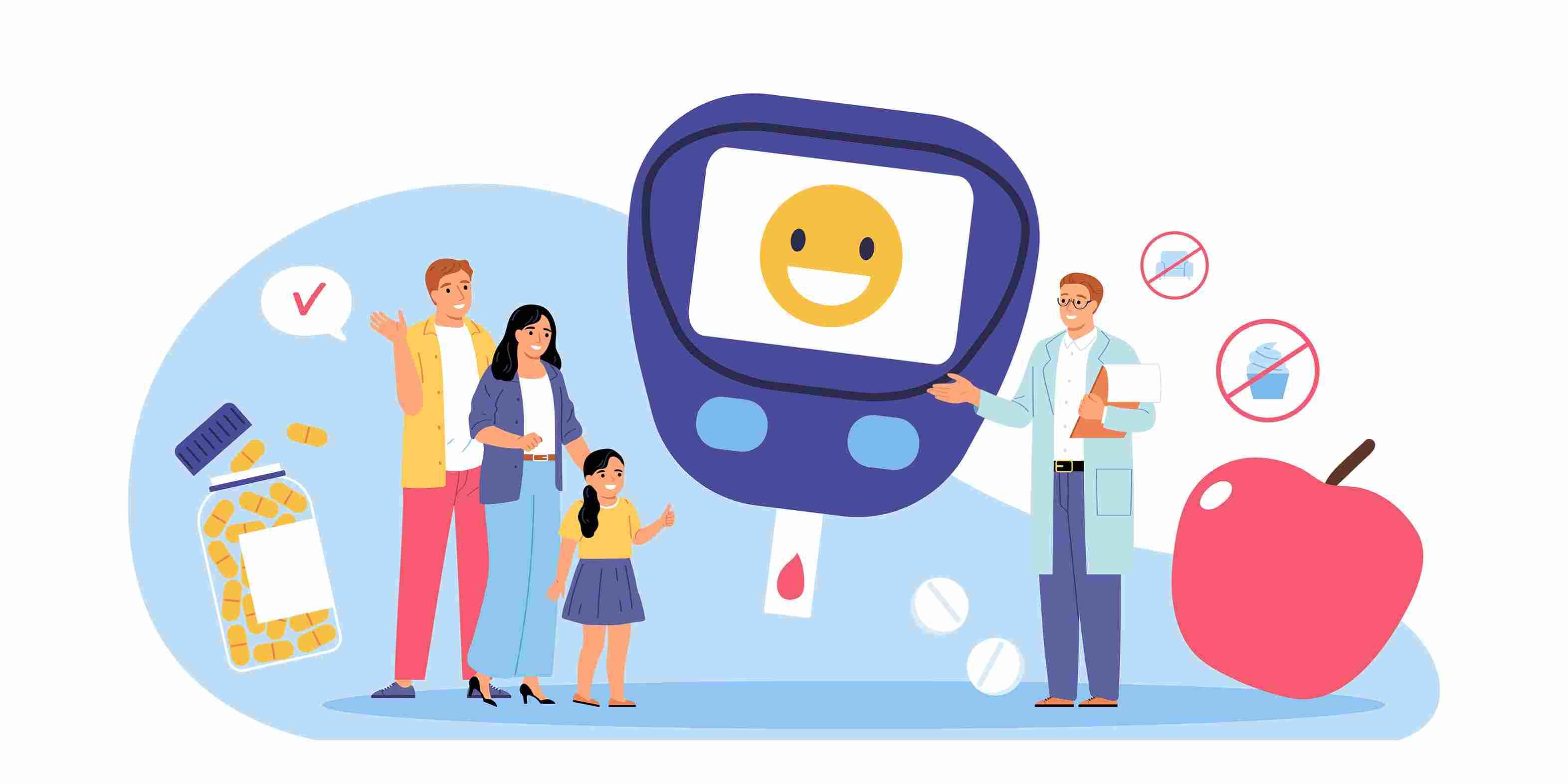10 Best Tips to Lower Your Insulin Levels

Medically Reviewed By
Dr. Ragiinii Sharma
Written By Meenakshi
on May 3, 2024
Last Edit Made By Meenakshi
on Jul 19, 2025

Insulin is a little tricky hormone.
A little change in its levels can put your health in big trouble.
While it is complex, the body must allow cells to absorb sugar from your body for energy. Their presence matters for your health, but having too much Insulin can cause your cells to become resistant to the hormone’s effects, which is called insulin resistance, leading to the pancreas producing more Insulin.
You need to take it seriously because it is often linked with Type 2 Diabetes.
If you still have doubts about insulin levels, what elevates them in the body, and how to lower abnormally high Insulin levels, this blog is just for you.
Here, you can check everything you need about your Insulin Levels.
So, what the wait is for? Dig in to get all the information.
Let’s start with the basics.
So, what exactly is Insulin?
Insulin is a hormone your body needs to survive. No, it’s not a joke; this tiny hormone greatly saves your lives. Produced by the pancreas, Insulin helps the body absorb the sugar in your blood, which turns into energy and helps your cells function adequately.
To make a long story short, Insulin is the brain that manages and maintains proper blood sugar levels in the body.
When your body lacks Insulin, it can lead to high blood sugar or Type 1 Diabetes, and having too much of it can be a risk factor for Type 2 Diabetes.
In short, elevated Insulin levels are not good.
So, what should you do to address high insulin levels?
Can you lower them? If so, how?
Take a deep breath and keep reading; you will get all your answers right here.
10 Effective Ways To Lower Insulin Levels:
- Switch To A Low Carb Diet Plan:
Just the names Pasta, Pizza, Momos, Biryani, and Crispy Potato Chips can make you crave them. Fried or fast food is so tempting, making it hard to resist. But all these items contain more than just good taste, and that is Carbohydrates, which can cause more harm to your health and body than good, especially if your Insulin levels are not in balance.
Having too much carbohydrate can shoot up your insulin levels.
Many studies claim that a low-carbohydrate diet can reduce a person’s insulin levels while promoting healthy weight and balanced blood pressure levels.
So, swap fried to fresh food like fruits, vegetables, nuts, and more.
- Say No To Sugar:
If your insulin levels are elevated, it’s high time you broke up with all the sugary treats. It may be challenging, especially if you have a sweet tooth, but it can benefit your health. Eating too much sugar with elevated insulin levels can make your insulin levels go up even more and might cause unintended weight gain.
So, no matter how much you love sugar, you must reduce it to keep your insulin levels balanced.
- Limit The Intake Of Processed Food:
Not only is it high in carbohydrates, but it is also packed with unhealthy fats, added sugar, and other artificial ingredients, which can spike blood sugar and insulin levels. Excess and continuous consumption can strain your body’s insulin response, leading to imbalance and other health complications.
So, it’s high time you realize that nothing can beat the goodness of fresh food and limit your daily intake. Fresh foods meet your body’s nutrient needs and hold significant value in maintaining your insulin levels.
- Trim Down A Bit:
Are you overweight or obese? If you are nodding your head, you need to get rid of those extra pounds to lower your insulin levels. No, this is not just a random thought; as per the International Federation of Gynecology and Obstetrics studies, losing weight for an obese or overweight person can help them decrease their insulin levels.
While losing overall weight to have a healthy weight is good, in the case of high Insulin, you need to trim down the fat, usually from the belly area, which is not just dangerous but stubborn, too.
- Watch Your Portion:
Have you ever wondered why your insulin levels are not improving even after trying almost everything? No? Let us explain. It is because of your portion size. Eating too much at once can spike insulin levels, especially if you are a little overweight.
However, smaller portions make it easier for your body to use insulin levels. So, it's important to watch what you eat and how much you eat at a time.
- Boost Your Fiber Intake:
Fiber is indeed a good friend of your health. Not only does it help the body feel fuller for longer, but it also curbs your cravings and ensures stable insulin levels. Adding fiber-rich food can lower your insulin levels and support your health.
Make sure you value this friendship and switch to a fiber-rich diet,
- Say Hello To Cinnamon:
While many of you might not use Cinnamon daily, it can be wonderful to add sweetness not just to your diet but your life. Cinnamon may lower insulin levels and promote insulin sensitivity in people with or without Type 2 Diabetes.
However, the impacts may vary from person to person. So, it is worth a shot, but it should be considered when consulting with a healthcare provider.
- Indulge In Some Physical Activity:
If you are a couch potato who just loves Netflix and chill, it’s time you do more than that. While relaxation is important for helping your body revitalize, too much rest can harm your health.
On accepting the data in research and studies, breaking up periods of sitting can improve insulin levels and contribute to overall wellness. So, if you are leading a sedentary lifestyle and looking for a way to lower your insulin level, nothing will help as long you continue leading your life this way.
Break the habit, get up from your couch, and move daily. With a move, the clear meaning is to add some physical activity to your routine.
- Do Not Forget The Hydration Mantra:
There is no need to debate that Water is everything your body needs. Besides quenching your thirst, it helps maintain blood sugar and steady insulin levels. A well-hydrated body can help maintain optimal insulin function and healthy insulin levels.
It allows your body to respond better to insulin signals, ensuring optimal working and more stable levels.
- Get Routinely Tested:
Remember, all your efforts go in vague if you don’t keep track of changes, and there comes the role of routine checkups. Depending on your health, age, medical history, and other factors, your doctor may suggest an Insulin Fasting Test or Insulin Random Test or else to evaluate the status of your Insulin levels.
Knowing the fluctuations in their levels can help you be proactive and take better steps for effective management.
The Bottom Line:
Lowering Insulin Levels is not hard, and with a holistic approach, the goal can be attained appropriately. So, make these changes in your diet and lifestyle to reduce insulin levels and improve your overall quality of life. If your doctor has suggested an Insulin Test, Blood Sugar Test, or any other Diagnostic Test, reach out to Redcliffe Labs.
Knowing your insulin status today can help you take charge and benefit your overall health tomorrow.



